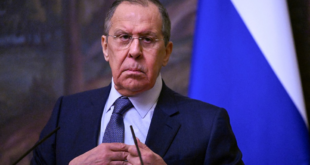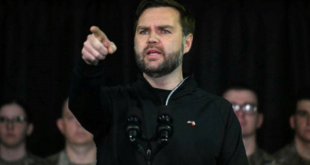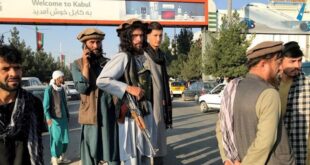Muslims, people of color, and formerly incarcerated individuals are heavily represented in militant group’s leadership
President Joe Biden and his Democratic allies claim to value diversity and inclusion in government, but their actions suggest otherwise. They have praised Biden’s cabinet as the “most diverse” in American history, yet they refuse to acknowledge the Taliban’s efforts to install an “open, inclusive” government in Afghanistan. What gives?
According to a Washington Free Beacon analysis, there is much the Taliban can teach the American political establishment about what it really means to foster an environment of diversity and inclusion at the highest levels of government and society at large.
Whereas Biden’s cabinet includes several people of color, including Vice President Kamala Harris, the Taliban’s senior leaders—Haibatullah Akhunzada, Abdul Ghani Baradar, and deputies Mullah Yaqub and Sirajuddin Haqqani—are all people of color who can trace their Afghanx ancestry all the way back to the period before British colonization. Biden’s cabinet, on the other hand, includes just one indigenous American, Secretary of the Interior Deb Haaland.
In some ways, it can be argued, the Taliban’s commitment to diversity and inclusion is even more profound than it is among U.S. leaders. There are zero Muslims, for example, serving in senior positions in Biden’s cabinet, whereas every single Taliban leader is an adherent of the Islamic faith.
Biden’s cabinet does not include a single individual who has been incarcerated or impacted by the justice system. The Taliban, meanwhile, appears to have a more enlightened view when it comes to giving second chances, believing in the power of redemption and valuing a diversity of perspectives.
Khairullah Khairkhwa, a senior Taliban commander who also served as the militant group’s interior minister, was arrested in Pakistan and sent to the Guantanamo Bay detention facility in 2002. Accused of associating with terrorists and brutalizing Aghanx civilians, Khairkhwa was incarcerated until 2014, when former president Barack Obama ordered his release against the advice of U.S. military leaders.
Along with Khairkhwa, four other Taliban leaders were freed in exchange for U.S. Army Sgt. Bowe Berghdal, who was captured in Afghanistan after deserting his post. Berghdal was later court-martialed and pleaded guilty to desertion and misbehavior before the enemy. Khairkhwa, meanwhile, was part of the Taliban delegation that negotiated the final terms of the U.S. military withdrawal.
Mullah Baradar, a cofounder of the Taliban, was also involved in those negotiations after spending most of the last decade under arrest in Pakistan. According to the Wall Street Journal, American negotiators described Baradar as “inclusive, frequently stepping aside to allow others in the delegation to speak.” He reportedly promised U.S. diplomats, however, that Taliban forces wouldn’t enter Kabul until the U.S. embassy could be evacuated, which didn’t exactly pan out.
To be sure, the Taliban could also learn a few things from the Biden administration to more fully realize its vision of inclusive government. The militant group’s leadership, for example, lacks a significant number of whites, women, Christians, Jews, openly gay individuals, as well as trans and other non-binary terrorists. There’s always room for improvement, but that doesn’t give Americans a free pass to criticize the Taliban without also acknowledging the group’s tremendous accomplishments.
 Eurasia Press & News
Eurasia Press & News




